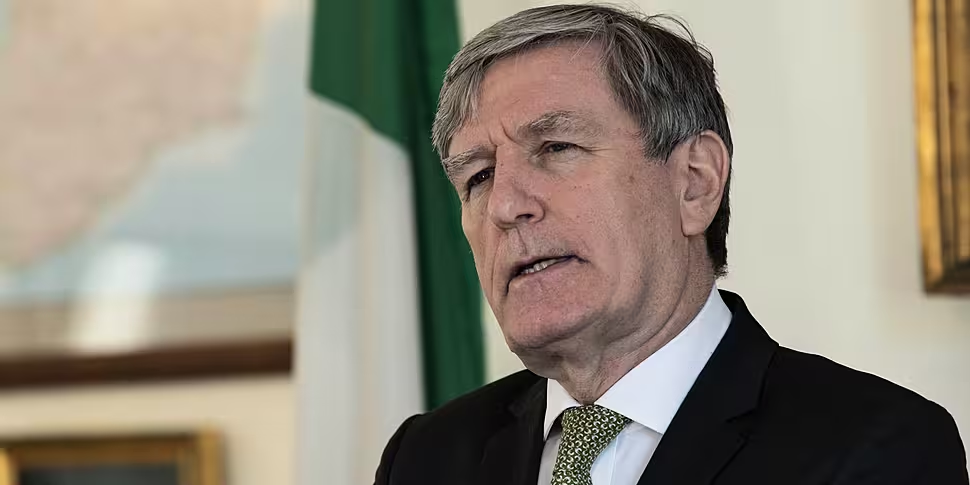The Irish Ambassador to the United States was "right" to criticise a New York Times columnist who used the word “leprechaun” when referring to Ireland, according to a journalist.
Daniel Mulhall said the use of the phrase “leprechaun economics” in an article about Ireland's tax policy on multinational companies was an “unacceptable slur”.
The phrase was coined by Paul Krugman, a Nobel Prize-winning economist who wrote a piece titled ‘Yellen’s New Alliance Against Leprechauns’ last week.
In a letter to the New York Times, Ambassador Mulhall said “derogatory references in a leading newspaper like yours are no laughing matter”.
“I do not go along with Mr Krugman’s disingenuous excuse that ‘the Irish have a sense of humour’ about his attacks on us," he wrote.
"While I am always happy to engage in serious debate about Ireland’s economic performance, derogatory references in a leading newspaper like yours are no laughing matter.
“Ireland has been fully engaged since 2013 in the international discussions about corporate tax reform, and we have proactively and diligently reformed our tax code in line with the new international norms agreed to thus far.
"Further agreement in this area cannot be arrived at through name-calling and national stereotyping."
And I was the first member of my family ever to go to university thanks to our Government’s investment in education starting in the 1960s. If you ask me, that’s the main reason why Ireland has been ‘transformed utterly’ in recent decades.
— Daniel Mulhall (@DanMulhall) June 12, 2021
Jon Ihle, Deputy Business Editor at the Irish Independent, told Máire Treasa Ní Cheallaigh on Newstalk Breakfast Weekends how the disagreement between Mr Krugman and Ambassador Mulhall transpired.
"What Paul Krugman has done on numerous occasions, most recently last week, was talk about this concept of 'leprechaun economics'," he said.
"This is how he describes the global system of profit shifting where big companies book their profits in lower tax jurisdictions like Ireland.
"He has chosen Ireland as the kind of economic example of that and has developed this phrase 'leprechaun economics'."
Mr Ihle's opinion of the term is that "it's not a particularly nice way of describing it".
"You can make the criticism without using derogatory terms so I think the ambassador was probably right to pull him up on that," he said.
"The New York Times is supposed to be a sober, analytical paper, and this was really, let's call it what it is, an ethnic slur.
"OK, leprechaun economics isn't exactly an evil caricature or anything.
"But it really obscures from the larger argument he was trying to make which is that what's happening in the world right now is there is a battle between the forces of capital, these big multinational companies, and the forces of labour and how benefits are divided across the globe when these companies are making billions and billions of euros in profits and who benefits from that.
 Paul Krugman pictured in 2012. Photo: MISTER SHADOW/AE/AE
Paul Krugman pictured in 2012. Photo: MISTER SHADOW/AE/AE"Also, this issue of national tax sovereignty, do we want global companies to gradually erode the power of national governments.
"That's something that the Biden administration is very concerned about and they want to tip the balance in favour of capital investments, jobs, labour, those good old economy things that Democrats love."
Mr Ihle continued: "Krugman would be really aligned in that view, what really matters is people's jobs, what really matters are physical things that you build on the ground and tangible improvements in people's lives as opposed to this game that multinationals play of moving profits around and minimising the amount of tax they have to pay, which ultimately benefits a few shareholders and the people at the top of the companies.
"It's a pity that Krugman relies on that kind of language when talking about probably the most important issue in global economics today which is who gets the money.
"I think the ambassador has a job to do there which is to stand up for Irish interests, not just economic interests but cultural, social and political as well.
"I don't think there's any need to talk about people in that way."









